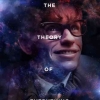I love watching crime TV series. One of my favourite crime TV series is CSI: NY. I like how the team deduce to the solution, I like the settings that make the series to look so real, I like the actors and actresses, etc. Thanks to CSI: NY that I and my husband could get a research topic regarding our concern in environmental issues and presented the research in an international conference in Thailand in year 2010.
Anyway, in one of the series titled “Green Piece”, the team in CSI: NY solved a mystery in related with an environmental issue. I still remember vividly that the police office (on the series, of course!) mentioned a “city” in China called Guiyu. Out of curiosity, I browsed the information about Guiyu and was shocked to read the facts about that “city”. Guiyu is actually an agglomerate of four villages in Guangdong Province and is the largest electronic waste in China, and maybe also in the world. One of the heartbreaking facts about Guiyu is that the e-waste in that particular area has detrimental effects to the people who live there (1). Until recently, most of the e-waste in Guiyu come from overseas, but the amount of domestic e-waste is on the rise (2). How little do we know of the effects of our conspicuous consumption to other people in the different part of the world!
Guiyu, the e-waste capital of the world (3)
My husband and I tried to raise environmental awareness among students in a private university in Surabaya, Indonesia (where we came from). We conducted an experiment to test whether there was any change in students’ environmental knowledge, attitudes, and behaviours following a brief text and video presentation (4) on environmental issues related to the electronic waste in Guiyu. The subjects of our experiment were thirty students who claimed to have little or no interest in any environmental issue. The results of the research showed that the experiment had successfully brought significant changes in subjects’ environmental knowledge and attitudes, as well as certain purchasing behaviours. The research results brought hope that even a person who had little or no interest in environmental issues can be taught to put environmental issues into consideration before making any economic decision.
Strongly supported by the results of our research, my husband and I believe that education is a way to make this world a better place to live in. Environmental education should be included in a school curriculum as early as possible. Schools should create an academic merit system that appreciates good thinking and habit related to the environment. Adults should also be taught that their consumption patterns do have impacts on the environment.
I can only imagine what the world would be like if everyone was environmentally aware. We would live with cleaner air, water, and soil. We would experience more predictable and favourable weather change. We would be able to buy any fresh food without worrying whether there was an unsafe heavy metal level in that particular food. We would also see the decline of any environmental-related diseases (e.g., dengue fever, cancer, etc.) in the world.
I would like to conclude this writing with an ancient Indian quote “We do not inherit this earth from our ancestors, we borrow it from our children.” I would love to pass on a better world to live in to my children. What about you? What kind of world would you love to pass on to the next generation?
===================
(1) http://www.greenpeace.org/eastasia/campaigns/toxics/problems/e-waste/guiyu/
(2) http://www.nytimes.com/2007/11/18/world/asia/18iht-waste.1.8374259.html?_r=0 ; http://www.bbc.co.uk/news/technology-17782718
(3) Source: http://www.greenpeace.org/eastasia/Global/eastasia/photos/toxics/ewaste/guiyu-child-wires.jpg
(4) You can watch the video on youtube: https://www.youtube.com/watch?v=IhNInIqu2hM
Written for World Environment Day http://unep.org/wed/2015_slogan/
Follow Instagram @kompasianacom juga Tiktok @kompasiana biar nggak ketinggalan event seru komunitas dan tips dapat cuan dari Kompasiana. Baca juga cerita inspiratif langsung dari smartphone kamu dengan bergabung di WhatsApp Channel Kompasiana di SINI







